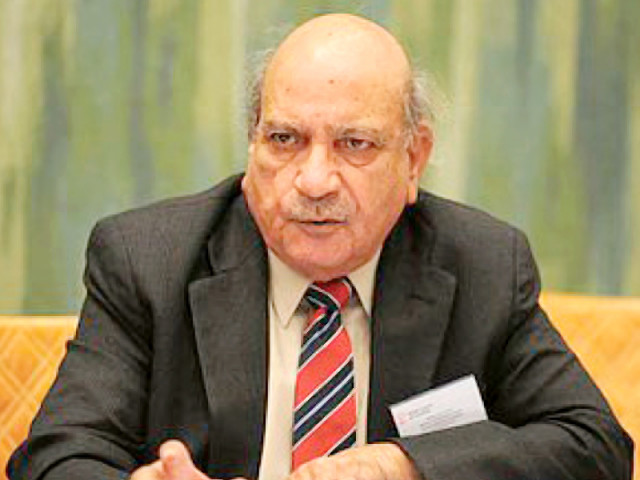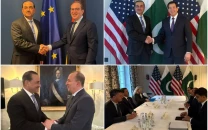HRCP report: Poll time issues for minorities highlighted
Study reveals electoral practices enable minorities to choose their rulers.

HRCP Director IA Rehman. PHOTO: FILE
“How can we talk about law and rights when the constitution clearly states that the President of Pakistan cannot be a non-Muslim,” William John Pervaiz, constituency coordinator for NA-48 Islamabad raised a question at the Human Rights Commission of Pakistan (HRCP) launch of a report titled, ‘Religious Minorities in Elections – Equal in Law, Not in Practice,’ here on Wednesday evening.
As the ghost of communalised politics still haunts the minority communities, there is not much done on ground for the minorities residing in Pakistan today. Growing at a considerable rate, the suppressed segment of society has felt abandoned for years now. However, with the revival of the joint electoral system a decade ago, political rights of the minorities for the first time during the elections as both voters and candidates seem to have sizable voting strength. While observing six National Assembly constituencies, five from Sindh where 80 percent minorities are Hindus and one from Punjab where 80 percent of minorities are Christians, the report highlights key challenges faced by minorities during the general election.
The study reveals a number of deviations from the standard electoral practices that could have been overcome if the local government authorities, the election supervisions and political parties had taken a little more interest in enabling members of religious minorities to freely exercise their right to choose their rulers. The study undertaken by the HRCP in collaboration with Church World Service of Pakistan/Afghanistan shows that the equality in electoral matters allowed to members of religious communities under the law was not available to them in practice during General Election 2013.

Usually belonging to underprivileged segments of society, the study confirms that freedom to vote independently depends on a voter’s economic and social independence. The low caste voters confront pressure from landlords and police officers. While presenting the findings of the report, HRCP Director IA Rehman stated that the only time a minority figure seems to gain momentum and popularity is when he/she is supported by a mainstream political party.
IA Rehman also said that the Election Commission of Pakistan (ECP) did refer to the urgency for special attention to voters belonging to religious minorities in its five-year plan. Moreover, minority female voters were particularly targeted and harassed by the polling staff.
The report further reveals that all minority community candidates complained of being asked by the Returning Officer (RO) during scrutiny of nomination papers, questions they considered derogatory to their faith. Complaints of lack of security arrangements were common. Nevertheless, some of these complaints have been registered with the ECP, Rehman asserted.
While some seemed satisfied at the fact that the initiative to highlight the concerns of minorities was presented in the shape of a report, others seemed to look at it as mere facts. “We went and knocked on the doors of at least 15 political parties and conveyed our concerns as minorities to them. Sadly, nothing has ever been done,” said Romana Bashir, Executive Director of Peace and Development Foundation.
Published in The Express Tribune, October 10th, 2013.



















COMMENTS
Comments are moderated and generally will be posted if they are on-topic and not abusive.
For more information, please see our Comments FAQ